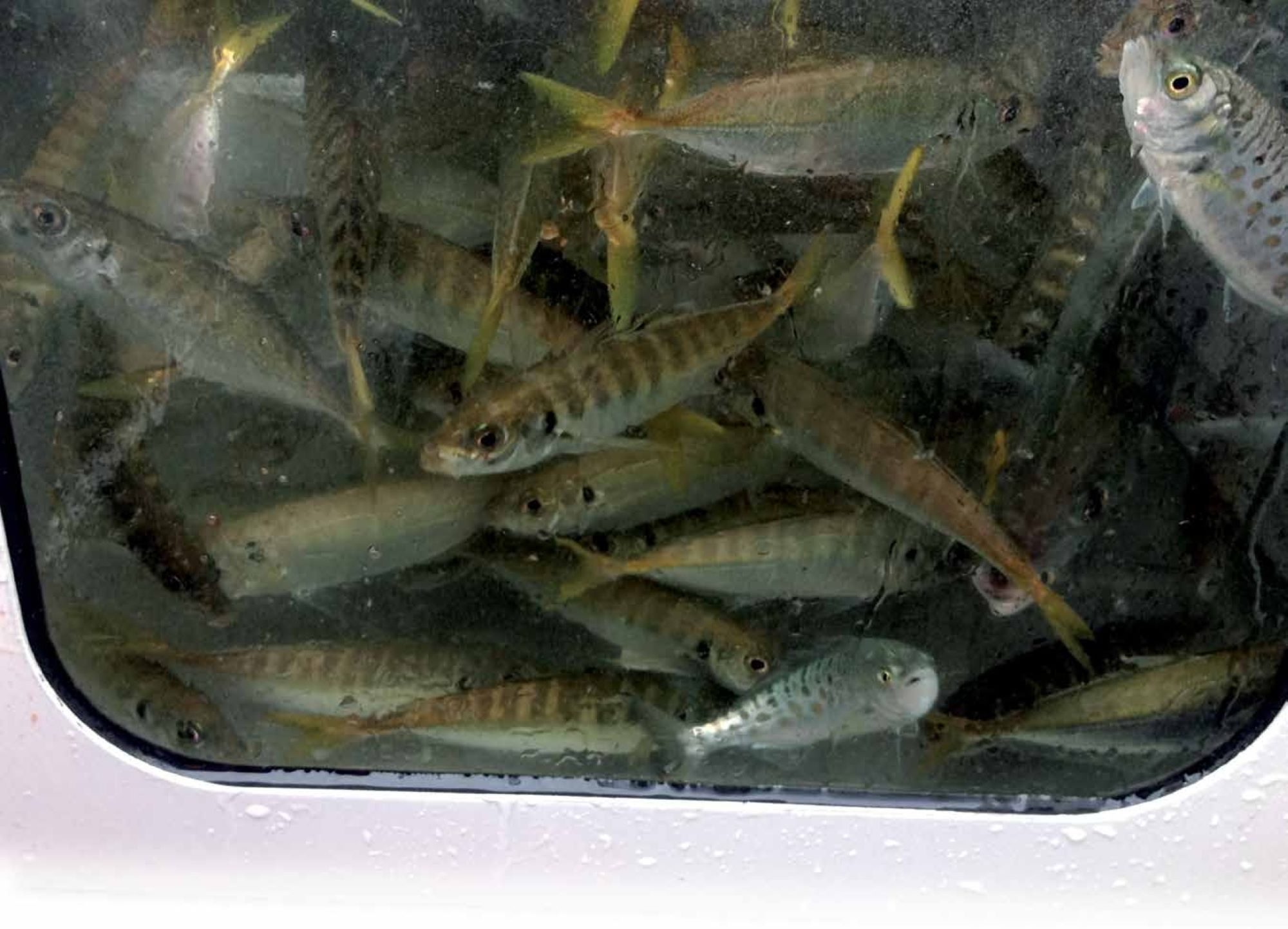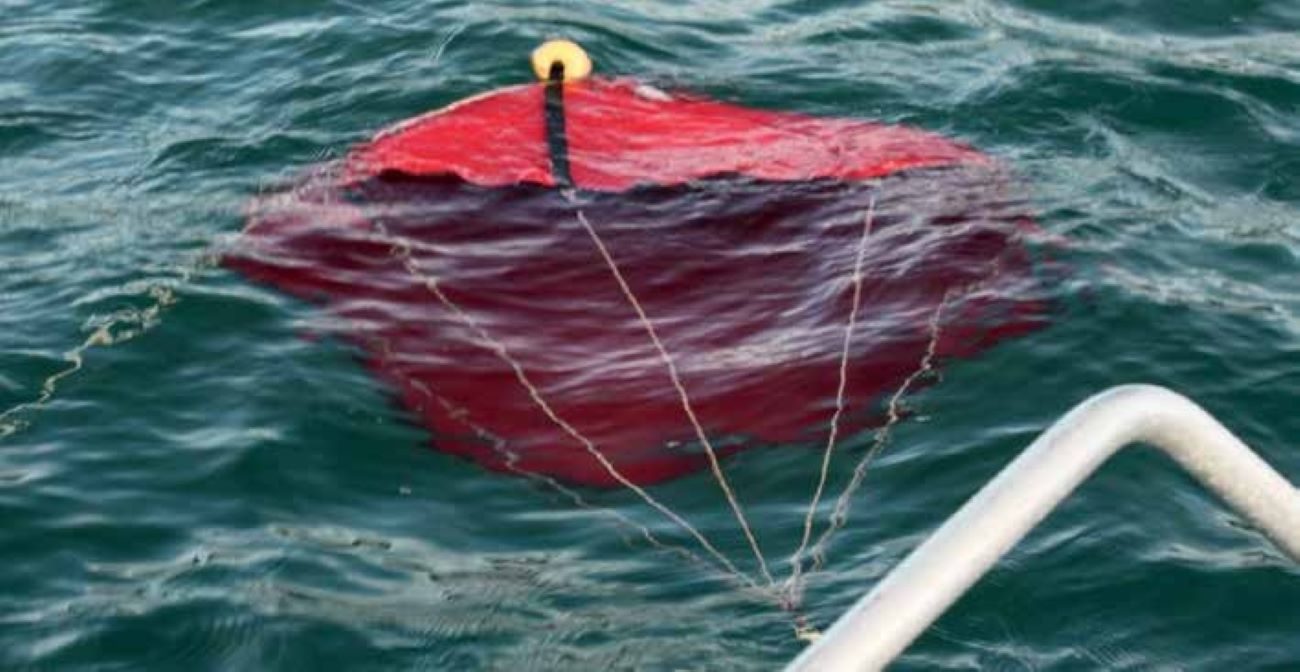

Pink maomao. Chances are many Kiwis don’t even know what pink maomao are, but if you have dived/fished the waters of northern New Zealand, you have almost certainly come across this attractive, brightly coloured reef fish.
A species of sea bass, pink maomao are a deepwater species rarely being seen above 20 metres and found around northern offshore islands like the Alderman group in the northern Bay of Plenty. They are often deep below those vivid blue surface-feeding schools of the similarly named but unrelated blue maomao. Or at least they did.
Recent reports by Tairua residents and others in seaside towns on the eastern side of the Coromandel Peninsula, backed by disturbing images of fish-bins full of pink maomao, have exposed what appears to be a well-organised ring of ‘recreational’ fishers targeting pink maomao and possibly other reef species as well.
It appears fleets of 5-6m trailer boats, crewed by five or six anglers armed with rods and reels (including electric reels) and strings of small hooks, have been setting out from Tairua, Pauanui, Whitianga, Whangamata and other coastal towns to fish Coromandel’s offshore reefs and islands, apparently targeting pink maomao.
This phenomenon has been going on for at least six months, mostly mid-week. Documentary film maker, recreational fisher, diver and environmentalist Mike Bhana helped bring this behaviour to the public’s attention after watching 12 boat loads of fishermen returning from nearby coastal fisheries with what he says was 1,500-2,500 pink maomao.
“One of these boats had six bin-loads” he told the NZ Herald. A bin on another boat Bhana was able to open and photograph contained an estimated 300 fish.

Some boats had multiple fish bins onboard. Photo: Mike Bhana
“We had reports of the boats rafted up on these offshore pinnacles fishing pink maomao all day and this has been going on for weeks, months. Every calm day they have been fishing these same reefs. Small pinnacles like these are incredibly vulnerable to overfishing especially if the target is reef species. This is our community – we can’t have this happening. We look after this fishery and have people coming in and raping it,” he said.
His frustration is shared by the rest of the community: “There’s got to be an urgent change to legislation. Otherwise, we’re wholesale slaughtering it.”
A flurry of social media posts generated a Facebook furore and mainstream media soon picked up the story.
Locals dub one group “The Tight Five”. The same five trailer boats, each with five or six crew, plus a skipper, were observed leaving a Coromandel harbour four days in a row during a recent stretch of fine weather. Tairua residents believe the group took thousands of fish every day. Trailer and vehicle registrations have been recorded.
Tairua local and long-time honorary fishery officer Brian Hart told media that on June 17 and 18 fisheries officers and police checked three boats with a combined total of 13 people onboard. They had 1,200 fish between them!
Hart believes it is possible these fish are being offloaded to an illegal market.
“This sort of behaviour shows these people are morally bankrupt and have no respect for our ocean,” he said.
And they can take as many fish as they like because, unlike snapper, trevally or kingfish, there is no specific limit for maomao, nor is pink maomao covered by the combined daily limit of 20 finfish per angler protecting many other species. It’s open season. In fact, only 25 fish species enjoy some measure of protection from recreational anglers. The rest are not even on the list.

Pink maomao is an attractive, slow- growing reef species that’s seldom targeted by recreational anglers. Photo: Wild Film Ltd.
Unsurprisingly, Tairua locals are incensed. Tempers flared. The local iwi, Ngati Hei, declared a rāhui on taking pink maomao in its rohe, between Whangapoua and Whangamata, a move strongly supported by the local community. However, observing a rāhui (or not) is voluntary, so whether it will discourage this sort of unethical and short-sighted behaviour remains to be seen, though I suspect the prospect of further confrontations with angry locals may well be disincentive enough.
“We’re calling on the conscience of New Zealanders to abide by it. It’s for their own good – actually it’s for their grandchildren’s own good that we are vigilant,” said Ngāti Hei kaumātua Joe Davis. The rāhui would stay in place “till the legislators sit up and take notice.”
In recent weeks access to the wharf at Tairua was blocked, boats were turned away and threats were made. But with emotions running high, Bhana is concerned residents will take matters into their own hands.
“People are really angry and the worry is somebody does something stupid and a local ends up in trouble and these guys carry on what they’re doing.”
Bhana wonders if at least some of the visiting recreational trailer boats are carrying paying anglers. If so, perhaps the catch is going home with the customers, but such charters are illegal, since the vessels are not in survey and skippers are unlicenced.
Another possibility is that fish are being caught to sell, which is also illegal. When confronted by angry residents one skipper reportedly admitted to selling maomao to “pay for his new Evinrude [outboard]”. There’s certainly a ready market today for ‘red’ fish that didn’t exist 20 or 30 years ago, but it’s against the law to sell recreationally caught fish of any sort.
Andrew McNabb is among the Tairua locals who witnessed the group launching from the town’s two wharves over the past several months. Last summer he worked for NIWA surveying catches brought into Pauanui and said some fishers were bringing in species not usually targeted by recreational fishers, including banded perch, golden snapper, pigfish and big granddaddy groper.
In the wake of what’s happening in the eastern Coromandel there is some hope this pink maomao furore will be a catalyst for change. Recreational fishing advocacy group Legasea, supported by the NZ Sport Fishing Council, has held talks with Ministry for Primary Industries (MPI) staff seeking legislation to protect pink maomao and other reef species, while communities have suggested changes to fishing rules.
MPI director of compliance services, Gary Orr, acknowledged staff had seen video footage of pink maomao being landed at Tairua Harbour and fielded calls from people in the community concerned about the amount of pink maomao being fished in the area.
“If MPI finds evidence that any of this fish is being sold, we would take appropriate compliance action. We encourage anyone who has been approached to buy pink maomao or any recreationally caught fish to contact our 0800 4 POACHER hotline.
“We are looking into this in relation to the issues raised recently and considering if the current settings remain appropriate or if more controls are needed,” said Orr.
Mike Bhana’s change.org petition, seeking urgent Government legislation to protect pink maomao and other reef fish, had received more than 8,000 signatures at the time of writing and Fisheries Minister David Parker has sought official advice on how to update the rules around recreational bag limits for pink maomao.
In my opinion changes to the rules can’t come quickly enough, but the attitudes towards the fishery need to change as well. This sort of exploitation has to stop. The responsibility for sustainable management of our marine resources lies with all New Zealanders, regardless of birth country, upbringing or cultural affiliation. The ocean’s bounty is a gift to enjoy, but it is not a free for all.
Sadly, exploiting loopholes in the rules is not illegal, just short-sighted, unethical and deeply selfish. Shame on you! Recreational fishing for commercial gain on the other hand, whether running illegal charters or selling fish on the black market, is breaking the law. Let’s hope the law isn’t an ass and comes down hard on any guilty parties. BNZ
Above photo: Bhana opened the lid on on this fish bin at Tairua, which was filled with an estimated 300 pink maomao and a few other reef fish. Photo: Mike Bhana




